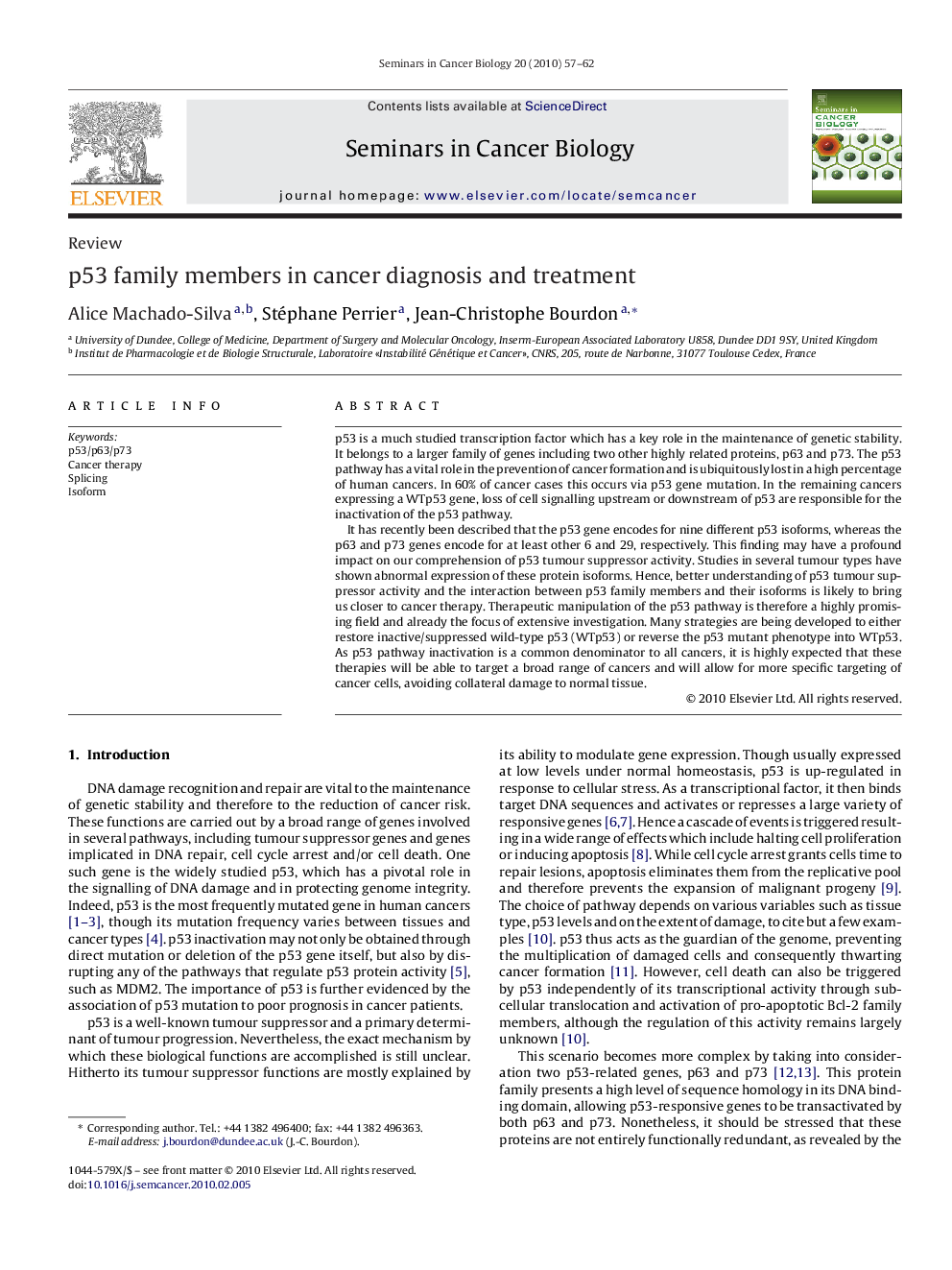| کد مقاله | کد نشریه | سال انتشار | مقاله انگلیسی | نسخه تمام متن |
|---|---|---|---|---|
| 2023994 | 1069836 | 2010 | 6 صفحه PDF | دانلود رایگان |

p53 is a much studied transcription factor which has a key role in the maintenance of genetic stability. It belongs to a larger family of genes including two other highly related proteins, p63 and p73. The p53 pathway has a vital role in the prevention of cancer formation and is ubiquitously lost in a high percentage of human cancers. In 60% of cancer cases this occurs via p53 gene mutation. In the remaining cancers expressing a WTp53 gene, loss of cell signalling upstream or downstream of p53 are responsible for the inactivation of the p53 pathway.It has recently been described that the p53 gene encodes for nine different p53 isoforms, whereas the p63 and p73 genes encode for at least other 6 and 29, respectively. This finding may have a profound impact on our comprehension of p53 tumour suppressor activity. Studies in several tumour types have shown abnormal expression of these protein isoforms. Hence, better understanding of p53 tumour suppressor activity and the interaction between p53 family members and their isoforms is likely to bring us closer to cancer therapy. Therapeutic manipulation of the p53 pathway is therefore a highly promising field and already the focus of extensive investigation. Many strategies are being developed to either restore inactive/suppressed wild-type p53 (WTp53) or reverse the p53 mutant phenotype into WTp53. As p53 pathway inactivation is a common denominator to all cancers, it is highly expected that these therapies will be able to target a broad range of cancers and will allow for more specific targeting of cancer cells, avoiding collateral damage to normal tissue.
Journal: Seminars in Cancer Biology - Volume 20, Issue 1, February 2010, Pages 57–62